Life
Sign up for our newsletter
We summarize the week's scientific breakthroughs every Thursday.
-
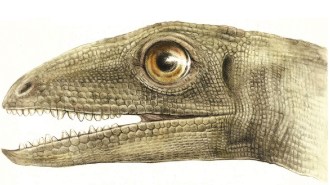 Paleontology
PaleontologyFossilized dung from a dinosaur ancestor yields a new beetle species
Whole beetles preserved in fossilized poo suggest that ancient droppings may deserve a closer look.
By Nikk Ogasa -
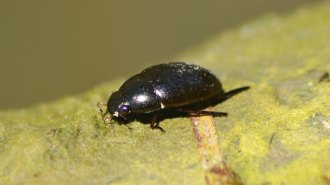 Animals
AnimalsThese beetles walk on water, upside down, underneath the surface
Many insects can skate atop the water’s surface thanks to water tension, but one beetle can apparently tread along the underside of this boundary.
By Jake Buehler -
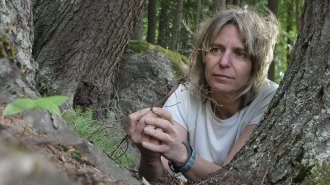 Science & Society
Science & SocietyAn ecologist’s new book gets at the root of trees’ social lives
In ‘Finding the Mother Tree,’ Suzanne Simard recounts how she discovered hidden networks in forests.
-
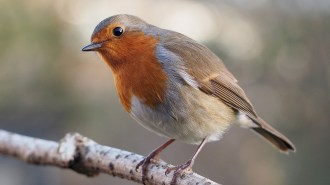 Animals
AnimalsA proposed ‘quantum compass’ for songbirds just got more plausible
Quantum physics could be behind birds’ magnetic sense of direction, new measurements indicate.
-
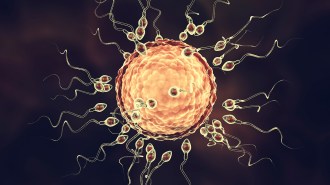 Genetics
GeneticsEmbryos appear to reverse their biological clock early in development
A new study suggests that the biological age of both mouse and human embryos resets during development.
-
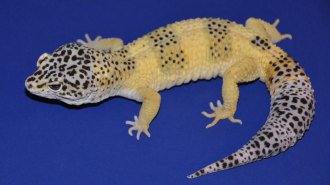 Animals
AnimalsHow a gecko named Mr. Frosty could help shed new light on skin cancer
The distinctive coloring and skin tumors of a type of gecko called Lemon Frost have been pegged to a gene implicated in human skin cancer.
-
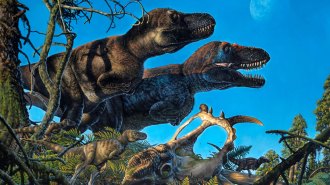 Paleontology
PaleontologyFor some dinosaurs, the Arctic may have been a great place to raise a family
Fossils of baby dinosaur remains found in northern Alaska challenge the idea that some dinosaurs spent only summers in the Arctic.
By Nikk Ogasa -
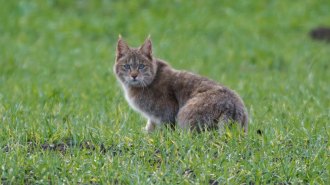 Animals
AnimalsChinese mountain cats swap DNA with domestic cats, but aren’t their ancestors
DNA suggests little-studied Chinese mountain cats have been rendezvousing with pet cats on the Qinghai-Tibetan Plateau since the 1950s.
-
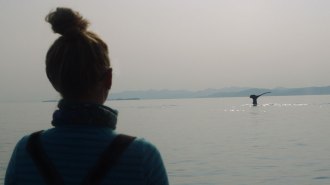 Animals
Animals‘Fathom’ seeks to unravel humpback whales’ soulful songs
The film ‘Fathom’ on Apple TV+ follows the quest of researchers on the ocean’s surface to decipher the eerie symphony of humpback whale calls below.
By Jake Buehler -
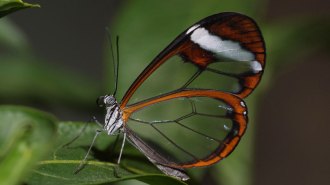 Animals
AnimalsNew images clarify how glasswing butterflies make their wings transparent
Close-up views of glasswing butterflies reveal the secrets behind the insect’s see-through wings: sparse, spindly scales and a waxy coating.
-
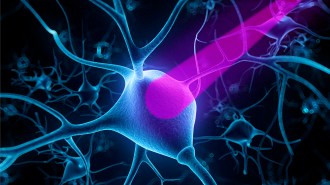 Health & Medicine
Health & MedicineControlling nerve cells with light opened new ways to study the brain
A method called optogenetics offers insights into memory, perception and addiction.
-
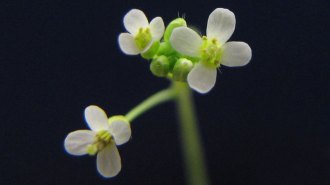 Plants
PlantsA widely studied lab plant has revealed a previously unknown organ
A cantilever-like plant part long evaded researchers’ notice in widely studied Arabidopsis thaliana, grown in hundreds of labs worldwide.